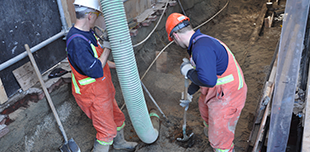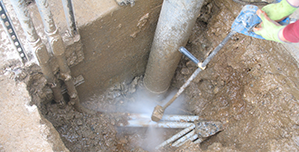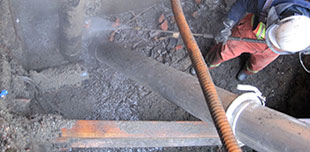A septic holding tank is a watertight tank that catches and contains the wastewater that comes from a home or a business. While most businesses and homes are going to have a connection to sewer lines, sometimes this is not possible because of the location. Those who are out of town may not have access to the sewer lines, and this means that they are going to need to have one of these septic holding tanks. This also means that they need to keep those tanks clean and in good condition if they do not want to have a huge mess on their property.
All of the wastewater that comes from the home or business needs to be in the holding tank until it can go for treatment or disposal. Because the tanks need to carry all of the water that comes from your home or place of business, they will often fill up quite quickly. Depending on the size of your tank and the number of people using water, you may need to have someone come, pump the tank, and clean it regularly.
You do not want to wait too long; otherwise, you can have an overflow or a backup of the system. It can also damage your tank. Some people choose to have an alarm on their septic holding tank that will alert them when the tank is 75% full. This ensures that you know when you need to have the professionals come out to your house and remove your wastewater from the holding tank.
Using low flow systems in your plumbing is one of the ways that some people are reducing the amount of wastewater that goes into the tank. This can help to reduce the frequency of your cleanings, and it is something that you may want to consider.
With regular inspections and cleaning, you can be sure that your tank remains clean and in good condition. You will not have to worry about overflows or a system that backs up. It is always important to have professionals who know their business to come, inspect your tank, and perform the cleaning. With the state of the art trucks and equipment that are available now, it is possible for them to do the cleaning and pumping of the septic holding tank quite quickly. Never wait too long between pumping for your tank or you might regret it!








